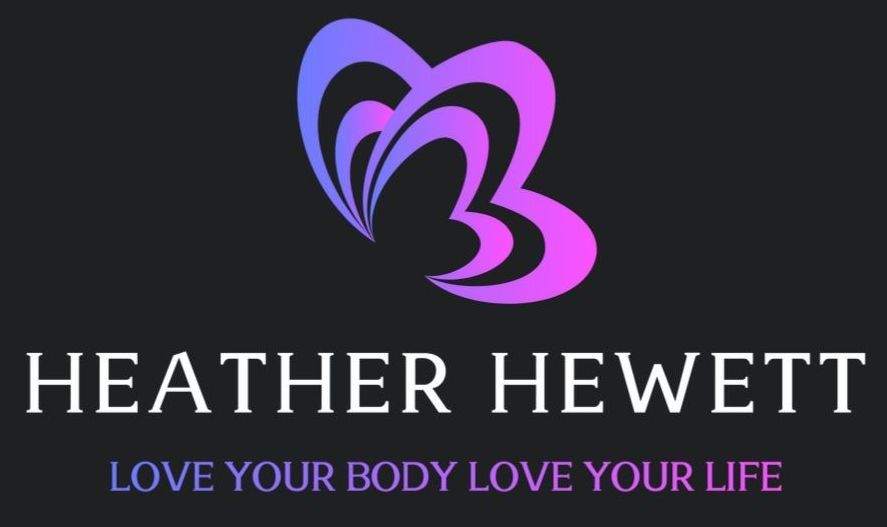How Can Health Coaching Services Improve your Wellbeing in 2025?
Health coaching services are increasingly important in 2025 as people look for personalized, holistic approaches to health and wellbeing. These services, whether in-person or virtual, offer customized plans designed to improve physical, mental, and emotional health. Virtual health coaching has become a game-changer, offering flexibility and access to expert support no matter where you are. Through personal health coaching, clients receive valuable guidance and accountability, enabling them to make lasting, sustainable changes to their lifestyle.
This guide will help you understand how health coaching services can significantly improve your overall wellbeing, whether you are looking for personalized guidance through personal health coaching or virtual coaching options. These services are tailored to support you in making long-term changes that enhance your physical health, mental resilience, and emotional wellbeing.
In recent years, the need for health coaching has surged due to the growing awareness of the importance of maintaining both physical and mental health. As people increasingly seek personalized solutions, health coaching offers a powerful, structured approach to achieving specific health goals. Whether it’s weight loss, improved fitness, or stress management, health coaching services are tailored to meet your unique needs. With the rise of online platforms, virtual health coaching has become a practical option for those who need flexibility and convenience.
Health coaching is now seen as a proactive, sustainable way to approach health and wellness. It provides clients with expert advice, support, and accountability helping individuals make lasting changes to their lifestyles. If you’re seeking a structured and personalized plan to enhance your health and wellness, health coaching might be the solution you’ve been looking for.
Why Health Coaching Services Matter in 2025
In 2025, health coaching services are more important than ever, as people recognize the need for comprehensive, individualized approaches to wellness. The focus on holistic health has led to a surge in the demand for personalized coaching, especially in areas like nutrition, mental health, and physical fitness. As the world becomes more interconnected, health coaching has become more accessible, particularly with the rise of online and virtual coaching services.
A major factor driving this growth is the growing awareness of the interconnectedness of physical, emotional, and mental health. Achieving long-term wellness requires more than just exercising or dieting; it's about managing stress, building emotional resilience, and creating a sustainable lifestyle. Health coaching services now incorporate all of these elements, focusing on the whole person, rather than just one aspect of health.
Moreover, the increasing prevalence of chronic diseases, including heart disease, diabetes, and mental health challenges like anxiety and depression, has further highlighted the need for comprehensive health coaching. Many individuals now seek guidance to address these concerns and make sustainable changes that will improve their overall health and quality of life.
Virtual health coaching has become an important tool in this process. With the ability to access coaching sessions remotely, people are now able to receive expert support regardless of location or time zone. This is particularly beneficial for individuals with busy schedules or those who live in areas without easy access to health professionals.
According to a 2023 report by the Global Wellness Institute, over 40% of wellness clients in North America now seek health coaching services through online platforms. This rise can be attributed to the convenience and flexibility of virtual health coaching, which allows clients to receive tailored advice from the comfort of their own homes.
“Health coaching services are essential in 2025 as they offer holistic, personalized guidance for improving physical, mental, and emotional health. The rise of virtual health coaching has made these services more accessible, providing flexible, expert support to clients worldwide.”
How to Use Health Coaching Services Step-by-Step
Health coaching is a highly personalized service designed to help you achieve your specific health goals. Whether you are interested in personal health coaching or prefer the flexibility of virtual health coaching, following a structured approach can help you maximize the benefits of these services.
Define Your Health Goals
The first step in the health coaching process is identifying your health and wellness goals. These might include physical goals, such as weight loss, muscle building, or improving fitness, as well as mental health goals, such as reducing stress, managing anxiety, or improving sleep. A clear set of goals will provide a foundation for your coaching sessions and help you and your coach create a customized plan.
It’s important to make your goals SMART (Specific, Measurable, Achievable, Relevant, and Time-bound). For example, instead of saying, "I want to lose weight," a SMART goal would be, "I want to lose 10 pounds in 3 months by exercising 4 times a week and tracking my food intake."
Research and Choose the Right Coach
Choosing the
right health coach is critical to your success. Health coaches specialize in different areas, such as fitness, nutrition, stress management, or mental health. Many health coaches offer wellbeing coaching, which is a more holistic approach to health that includes elements of both physical and mental health.
If you prefer virtual health coaching, you can choose from a wide range of coaches who offer services online. Make sure to look for a coach who has experience and expertise in your area of interest. Many coaches offer a free consultation or discovery call, which allows you to determine if their coaching style and approach align with your goals.
Establish a Regular Schedule
Consistency is key when it comes to health coaching. Whether you meet with your coach in person or virtually, it’s important to set up a regular schedule for check-ins. For
virtual health coaching, many coaches offer flexible scheduling options, allowing you to book sessions at times that are convenient for you.
The frequency of your sessions may vary depending on your goals. Some clients prefer weekly sessions to ensure they stay on track, while others may prefer bi-weekly or monthly check-ins. The key is to stay consistent and follow through on the commitments you make with your coach.
Track Your Progress
Tracking your progress is one of the most important parts of health coaching. Whether you use a fitness tracker, an app like MyFitnessPal, or a simple journal, keeping track of your daily activities, nutrition, sleep, and emotional health can help you and your coach measure your progress over time.
Your coach will likely provide tools or platforms to track your progress and may even use data to adjust your plan as needed. For example, if you're not seeing the expected results after a few weeks, your coach might suggest modifying your workout plan or adjusting your dietary habits.
Engage Regularly
Health coaching works best when there is regular communication between you and your coach. Whether through in-person meetings or virtual health coaching sessions, maintaining engagement with your coach helps ensure that you stay on track and remain accountable to your goals. Your coach will offer support, guidance, and motivation to help you push through any obstacles you encounter.
"To succeed with health coaching, it's essential to define your goals clearly, choose the right coach, stay consistent with your sessions, track your progress, and engage regularly."
“To get the most out of health coaching services, clearly define your health goals, choose the right coach, establish a consistent schedule, track your progress, and maintain regular communication with your coach.”
Common Mistakes and How to Avoid Them
While health coaching can be highly effective, many individuals make common mistakes that can hinder their progress. By being aware of these pitfalls and learning how to avoid them, you can ensure a more successful coaching experience.
Skipping Goal Setting
One of the most significant mistakes clients make is not setting clear, specific goals. Without measurable objectives, it can be difficult to stay focused and motivated. Take the time to identify exactly what you want to achieve with health coaching, whether it's weight loss, improved fitness, or better mental health. Your coach can help you set achievable goals and create a plan to reach them.
Failing to Stay Consistent
Consistency is critical when working with a health coach. Whether you meet in person or virtually, attending your sessions regularly and following through on your coach's recommendations is crucial to making progress. It's easy to become distracted or lose motivation, but staying consistent with your efforts will help you achieve lasting results.
Expecting Immediate Results
Health coaching is not about quick fixes. It’s a long-term investment in your health. While some changes, such as improved energy levels, may be noticeable right away, significant changes in fitness, weight, or mental health may take time. It's essential to be patient and allow your coach's plan to work over time.
Neglecting Mental Health
Health coaching should address both physical and mental health. Many individuals make the mistake of focusing solely on fitness or nutrition while neglecting their mental wellbeing. Stress management, emotional resilience, and self-care are just as important as physical health. Make sure your health coach addresses these aspects of wellness in your plan.
Overloading on Information
In the world of health and fitness, there is no shortage of conflicting advice, trends, and "miracle" solutions. It can be overwhelming to try to follow every new trend. Instead, trust your health coach’s expertise and stick to a plan that works for you. Your coach will provide a focused, structured approach to help you reach your goals without the need to chase every new fad.
“To make the most of health coaching services, avoid skipping goal setting, stay consistent, be patient, address both physical and mental health, and focus on a structured plan.”
Top Tools and Resources for Health Coaching
The right tools can significantly enhance the effectiveness of your health coaching sessions. Here are a few top resources that can help you stay on track and achieve your goals:
This popular app allows you to track your food intake and exercise routines. It’s especially useful for coaches who focus on nutrition, as it provides detailed information about your calorie intake, macronutrients, and overall diet. It’s a great tool for helping clients stay accountable to their nutrition goals.
Trainerize is an excellent tool for virtual health coaching, allowing coaches to send customized workout plans, track progress, and communicate directly with clients. It’s ideal for individuals who want personalized fitness programs delivered remotely.
Headspace is a meditation and mindfulness app that can be incorporated into your health coaching routine. It’s particularly helpful for stress management, promoting relaxation, and improving focus. Many health coaches use Headspace to guide clients toward greater mental and emotional wellbeing.
Fitbit is a popular tool for tracking physical activity, sleep, and other health metrics. Coaches can integrate Fitbit data into their health coaching plans, helping clients monitor their progress and make adjustments to their routines based on real-time data.
Similar to Headspace, Calm focuses on relaxation, stress reduction, and emotional wellness. It’s another tool that can be used to enhance the mental health aspect of your health coaching program.
“Tools like MyFitnessPal, Trainerize, Headspace, and Fitbit can help enhance your health coaching experience by providing valuable data and support for tracking your progress.”
FAQ
1. What is the difference between personal health coaching and online health coaching?
- Personal Health Coaching: In-person coaching sessions where you meet with your coach face-to-face to work on your goals.
- Online Health Coaching: Virtual coaching sessions conducted remotely, allowing you to communicate with your coach via video calls, phone, or messaging.
2. Can virtual health coaching be as effective as in-person coaching?
- Yes, many people find virtual health coaching equally effective as in-person coaching. Virtual coaching provides the same personalized advice, support, and guidance but with the added flexibility of remote communication.
3. How do I choose the right health coach for me?
- Research coaches who specialize in your area of interest and read reviews from previous clients. Many coaches offer free consultations to help you determine if they’re a good fit for your needs and goals.
4. How often should I meet with my health coach?
- The frequency of sessions depends on your goals. Many clients meet weekly or bi-weekly, but you may choose a different schedule depending on your availability and the nature of your health goals.
About the Author
Heather M. Hewett is a seasoned holistic health coach with over 22 years of experience in Naturopathy, Clinical Nutrition, and Health Coaching. She specializes in gut microbiome nutrition, weight loss, and somatic emotional regulation, offering a comprehensive approach to health that addresses the physical, emotional, and spiritual aspects of well-being.
Heather's coaching philosophy centers on the belief that true wellness transcends diets and weight loss. She emphasizes the importance of nurturing every facet of one's being—spiritual, mental, emotional, and physical—to achieve lasting health. Through personalized one-on-one coaching and group programs like "Love Your Body, Love Your Life!", Heather empowers individuals to break free from limiting beliefs, conquer emotional triggers, and embrace freedom in their emotional and physical selves.
Her compassionate and comprehensive coaching style has garnered positive feedback from clients, highlighting her ability to convey information in an accessible manner and create a safe, intimate space for transformation. Heather's dedication to fostering emotional resilience and autonomy in her clients underscores her commitment to guiding individuals on their journey toward holistic well-being.





